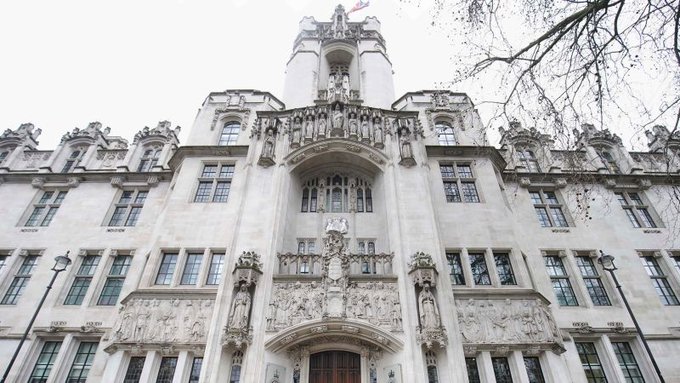The Supreme Court has upheld an appeal by a campaign group on whether transgender women are legally women under equality legislation, ruling that the law referred to a “biological woman and biological sex”.
The Court’s judgment related to whether a trans woman with a gender recognition certificate (GRC), a formal document which gives legal recognition of someone’s new gender, is protected from discrimination as a woman under Britain’s Equality Act.
The case had originated in Scotland when the Campaign group For Women Scotland (FWS) had argued those rights should only apply based on a person’s biological sex, and had challenged guidance issued by the devolved Scottish government over a 2018 law that was designed to increase the proportion of women on public sector boards.
Previously the Scottish ministers’ guidance on that law stated that a trans woman with a full GRC was legally a woman.
“The terms women and sex in the Equality Act 2010 refer to a biological woman and biological sex, but we counsel against reading this judgment as a triumph for one or more groups in our society at the expense of another – it is not,” Patrick Hodge, Deputy President of the Supreme Court.
The ruling confirms sex cannot be changed via a gender recognition process, and that someone who has completed such a process does not get the legal protections of that sex under the 2010 equalities law
Conservative leader Kemi Badenoch branded the decision a “victory”
The Labour for Trans Rights group said it was disappointed in the ruling too, and called on its party to “not follow the example of Donald Trump.
The Scottish First Minister John Swinney said his SNP administration “accepts” the ruling and will “now engage on the implications.”







